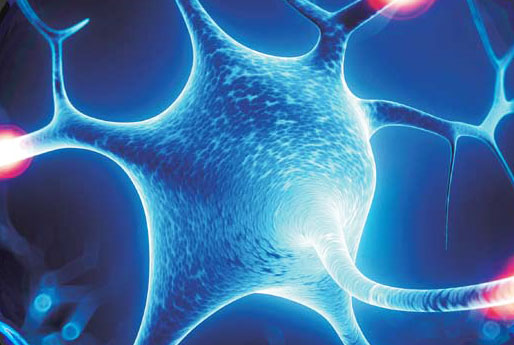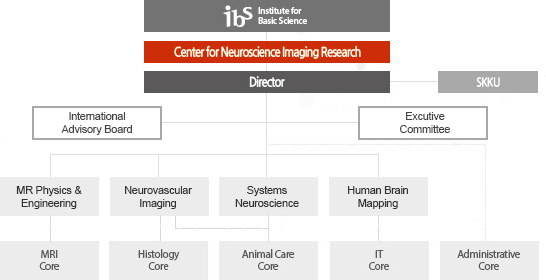주메뉴
- About IBS 연구원소개
-
Research Centers
연구단소개
- Research Outcomes
- Mathematics
- Physics
- Center for Underground Physics
- Center for Theoretical Physics of the Universe (Particle Theory and Cosmology Group)
- Center for Theoretical Physics of the Universe (Cosmology, Gravity and Astroparticle Physics Group)
- Dark Matter Axion Group
- Center for Artificial Low Dimensional Electronic Systems
- Center for Quantum Nanoscience
- Center for Exotic Nuclear Studies
- Center for Van der Waals Quantum Solids
- Center for Relativistic Laser Science
- Chemistry
- Life Sciences
- Earth Science
- Interdisciplinary
- Center for Neuroscience Imaging Research (Neuro Technology Group)
- Center for Neuroscience Imaging Research (Cognitive and Computational Neuroscience Group)
- Center for Algorithmic and Robotized Synthesis
- Center for Nanomedicine
- Center for Biomolecular and Cellular Structure
- Center for 2D Quantum Heterostructures
- Institutes
- Korea Virus Research Institute
- News Center 뉴스 센터
- Career 인재초빙
- Living in Korea IBS School-UST
- IBS School 윤리경영


주메뉴
- About IBS
-
Research Centers
- Research Outcomes
- Mathematics
- Physics
- Center for Underground Physics
- Center for Theoretical Physics of the Universe (Particle Theory and Cosmology Group)
- Center for Theoretical Physics of the Universe (Cosmology, Gravity and Astroparticle Physics Group)
- Dark Matter Axion Group
- Center for Artificial Low Dimensional Electronic Systems
- Center for Quantum Nanoscience
- Center for Exotic Nuclear Studies
- Center for Van der Waals Quantum Solids
- Center for Relativistic Laser Science
- Chemistry
- Life Sciences
- Earth Science
- Interdisciplinary
- Center for Neuroscience Imaging Research (Neuro Technology Group)
- Center for Neuroscience Imaging Research (Cognitive and Computational Neuroscience Group)
- Center for Algorithmic and Robotized Synthesis
- Center for Nanomedicine
- Center for Biomolecular and Cellular Structure
- Center for 2D Quantum Heterostructures
- Institutes
- Korea Virus Research Institute
- News Center
- Career
- Living in Korea
- IBS School
Research Centers
- Research Outcomes
- Mathematics
- Physics
- Center for Underground Physics
- Center for Theoretical Physics of the Universe (Particle Theory and Cosmology Group)
- Center for Theoretical Physics of the Universe (Cosmology, Gravity and Astroparticle Physics Group)
- Dark Matter Axion Group
- Center for Artificial Low Dimensional Electronic Systems
- Center for Quantum Nanoscience
- Center for Exotic Nuclear Studies
- Center for Van der Waals Quantum Solids
- Center for Relativistic Laser Science
- Chemistry
- Life Sciences
- Earth Science
- Interdisciplinary
- Center for Neuroscience Imaging Research (Neuro Technology Group)
- Center for Neuroscience Imaging Research (Cognitive and Computational Neuroscience Group)
- Center for Algorithmic and Robotized Synthesis
- Center for Nanomedicine
- Center for Biomolecular and Cellular Structure
- Center for 2D Quantum Heterostructures
- Institutes
- Korea Virus Research Institute
Advancing systems neuroscience with neuroimaging
Tel. +82-31-299-4400
Fax +82-31-299-4506
IBS Center for Neuroscience Imaging Research
#86364, N Center, Sungkyunkwan University, Seobu-ro 2066, Jangan-gu, Suwon, South Korea
Director

Director KIM Seong-Gi
Professor KIM is the director of the Center for Neuroscience Imaging Research, established in July 2013. He earned his Ph.D. in Physical Chemistry from Washington University in 1988. He became a professor at the University of Pittsburgh where he was later appointed to the Paul C. Lauterbur Chair in Imaging Research. He returned to Korea in 2013 and was appointed a professor at SKKU and a director of the Center for Neuroscience Imaging Research.
Introduction

Producing basic brain science knowledge for research of physiological mechanisms and functions of human and animal brains
- - Investigating various neuroimaging at the molecular, cellular and tissue level by utilizing fMRI technology
- - Investigating neuroimaging of human and animal systems for research of their physiological mechanisms
Main research activities
Welcome to IBS Center for Neuroscience Imaging Research (CNIR)!
As you all know, understanding brain structures, function, networks and behaviors is one of sciences last and most daunting challenges. Since the brain has the order of one hundred billion cells, all of which are highly organized into structure and inter-connected for efficient communication, it is extremely difficult and tedious to determine the relationship between structure and function and to investigate the neural circuits of behaviors and underlying physiology in humans and animals. To accelerate the progress of brain research, the CNIR relies on high-tech neuroimaging tools such as magnetic resonance imaging, multi-photon microscope, and electrode arrays to investigate the entire brain or large brain area.
The CNIR consists of multiple inter-related research groups for the integration of experimental approaches from a diversity of disciplines; i) the Physics, Chemistry and Engineering group, which will develop novel methods and materials for brain research, ii) the Computation and Data Analysis group, which will determine signal processing and computation approaches to handle large amount of brain data, and iii) the Neurobiology and Cognitive Neuroscience groups, which will investigate behaviors and diseases in normal and dysfunctional rodents, monkeys and humans.
The CNIR will be housed in a new, approximately 3,000 square meter, three-story building in early 2015. It will have core facilities including animal and human MRI, two-photon microscope, super high-resolution confocal microscope, computer clusters, electronic and machine shop, histology lab, and rodent and non-human primate animal housing. The major emphasis is to create an open research environment and to encourage synergetic, multi-modal, multi-disciplinary, creative neuroscience research. The CNIR is interested in collaborative research with investigators around the world.
When you have time, please visit our center at Sungkyunkwan University in Korean Silicon Valley, Suwon.
Organization

Main research results
- Neurovascular coupling under chronic stress is modified by altered GABAergic interneuron activity
(Journal of Neuroscience, 2019) - Microsphere-based interferometric optical probe
(Nature Communications, 2018) - Label-free nanoscale optical metrology on myelinated axons in vivo
(Nature Communications, 2017)
Personnel
| Total | 105 |
|---|---|
| Gender | 56(Male), 49(Female) |
| Korean/ International | 93(Korean), 12(International) |
Degree
Position
As of January. 2020
- Content Manager
- Center for Neuroscience Imaging Research : Jang mi rang 031-299-4400
- Last Update 2025-05-14 10:56












